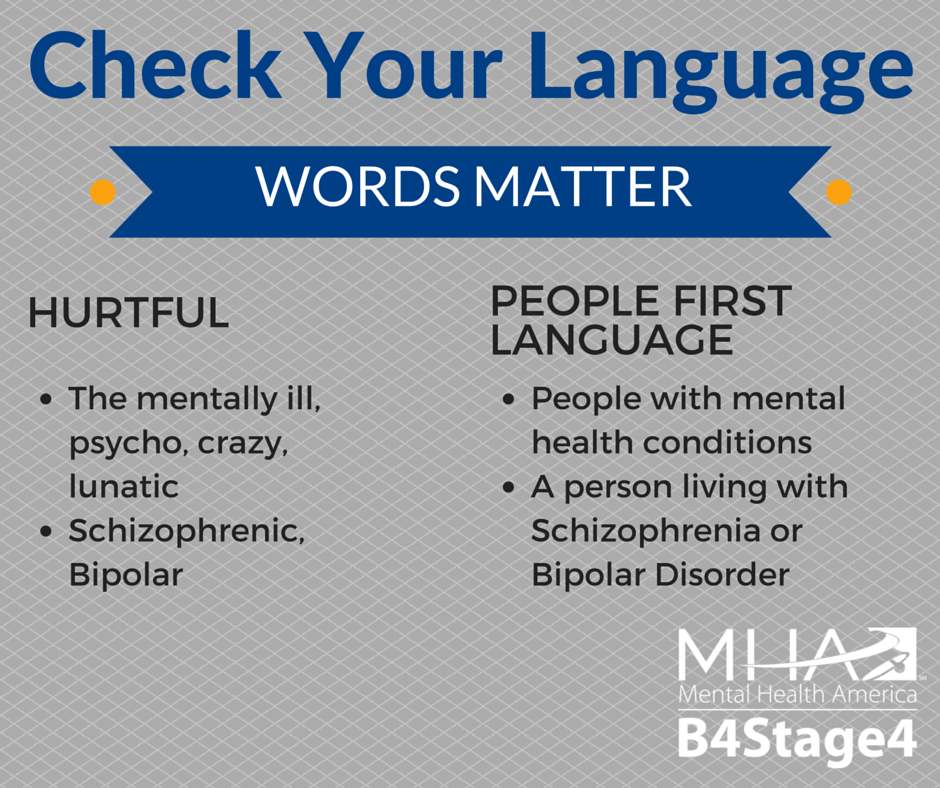Person-Centered Language
Person-Centered or Person-First Language and Recovery
When you're told for the first time that you have a diagnosis of a mental health problem, it's hard to understand what all of it means. What does being diagnosed with depression mean? Will I get better? What does treatment look like? Is there a cure or is mental illness a life-long battle? Does this mean I'm "crazy"?
This process is made even more difficult by the way mental illness is often portrayed in the media, viewed by society, and subsequently how people with mental illness are treated in their everyday life. In the mental health community a history of discrimination and disempowerment led many to seek a way for individuals to reclaim their identity and their role in their own therapeutic process. Placing the person at the center and above all other aspects of the treatment process is the foundation of The Recovery Model.
The use of language is critical to ensuring a recovery-oriented and person-centered approach. It is important that people are seen first as people and not seen as their mental health condition. People are not Schizophrenic, Bipolar, or Borderline. People are not cases or illnesses to be managed. Outside of just being insensitive, the following is an example of the harm in taking an illness-centered approach. When people are seen only as Schizophrenic, it often becomes too easy to focus on just reducing symptoms of psychosis. The problem is that there is so much more to getting better than just getting rid of the bad voices or other symptoms. Recovery involves increasing a person's ability to make the changes they want in their life - the power to get better, to identify their goals, to develop the ability to accomplish their goals, and provide the supports needed to attain their goals. It means focusing on the person's strengths and the choices they want for their lives - not just their symptoms.
It is important to assess the way we use language and how the use of language reinforces negative biases or promotes empowerment and strengths. It is helpful to remember that people often identify by roles where they find meaning. Strengths-based roles help us to feel better and promote recovery: "I am a father, a sister, an electrician, a friend." Negative language reinforces discrimination and isolation in society. It is hurtful and detrimental to the recovery process to be called crazy, schizophrenic, wacko...
In the mental health field, people may self-identify as clients, consumers, peers, survivors, person in recovery. When taking a person-centered approach, people should be identified by the language or title they feel most comfortable with. When in doubt, call someone by their name...and ask how they would like to be addressed.


